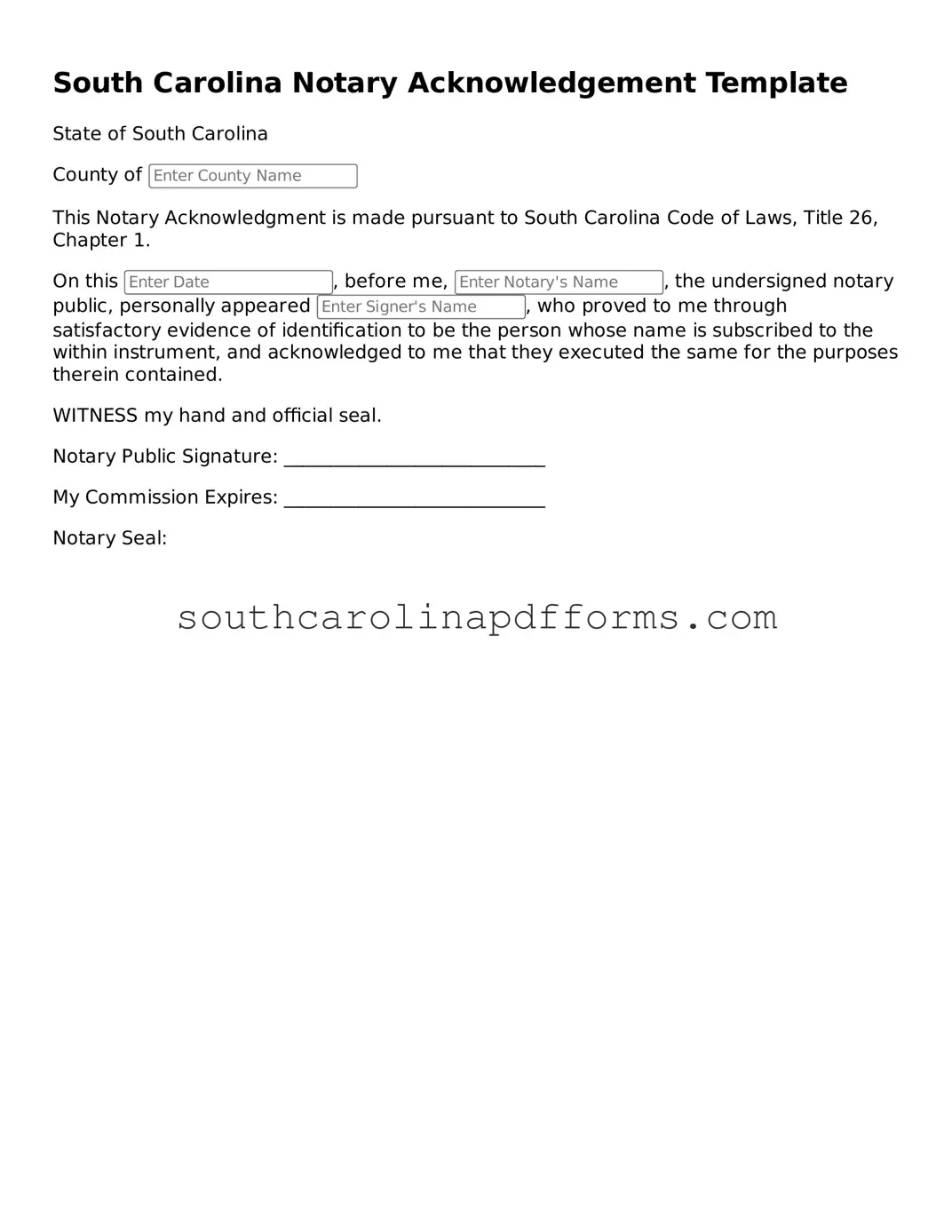Attorney-Approved South Carolina Notary Acknowledgement Document
The South Carolina Notary Acknowledgement form serves as a legal document that verifies a person's signature on a specific document. This form is crucial in ensuring that the signer is who they claim to be and that they signed willingly. Understanding its purpose and proper usage is essential for anyone involved in legal transactions in South Carolina.
Access Notary Acknowledgement Here
